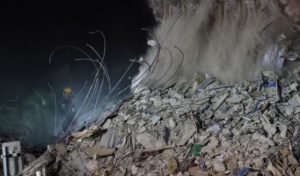
Public officials and sober living home operators dispute whether sober living homes need more oversight.
“Stop sending your children and your loved ones to South Florida—because we’re sending them back in body bags,” one local legislator reportedly warned.
Lured by unscrupulous actors, many individuals addicted to drugs have headed to South Florida for treatment. Instead, the addicts too often find themselves locked into a relapse cycle in which operators of sober living homes—halfway houses for addicts that provide treatment—fail to provide meaningful treatment and instead focus on billing insurance programs excessively and unethically. As a result, 70 percent of overdoses in Delray Beach, a town in South Florida, occur within a quarter-mile of a sober home.
To combat pervasive insurance fraud, public officials are increasingly calling for greater regulation and oversight of sober homes. These calls come in the face of a surging opioid epidemic, and the Trump Administration’s recommendation of an expansion of treatment programs like sober homes as key to curbing the epidemic. But some public officials claim that sober homes can actually obstruct individuals on their path to recovery from drug addiction. Most states do not subject sobers homes to registration, inspection, or other requirements.
According to some officials, this lack of regulation provides the conditions that allow the opioid epidemic to flourish. Many sober homes bill insurance programs thousands of dollars for excessive tests and care not provided.
To do so, some “brokers” sign up addicts, without their knowledge, for premium insurance plans. For other addicts with insurance, brokers cover the transportation costs to send addicts to certain sober homes, mostly located in South Florida. Some sober home operators want to ensure addicts stay in the sober homes as long as possible to cash in on insurance coverage—even if it means providing addicts with drugs so they will relapse.
Some officials have proposed voluntary certification programs as a solution to the corruption in the treatment industry. To become certified, operators of sober homes must consent to background checks and regular onsite inspections. In 2015, Florida Governor Rick Scott (R) signed into law a bill establishing a voluntary certification program for the state’s sober homes. The law also prohibits licensed treatment centers from referring patients to non-certified sober homes.
Across the country, other cities have approved ordinances that require sober homes to receive and pay for licenses before operation. Others have adopted city ordinances that limit the presence of sober homes in a specified area. Some supporters of regulating sober homes have even proposed that cities require drug testing at sober home facilities.
Some critics of regulations like these contend that such restrictions imposed on sober homes violate the Fair Housing Act (FHA). The act prohibits municipalities from passing housing laws on the basis of disability status and, under the Americans with Disabilities Act, addicts qualify as disabled. Indeed, some cities attempting to regulate sober homes have spent millions of taxpayer dollars in legal costs fighting violation claims.
But supporters of regulating sober homes claim oversight is still needed because of the recovery process. Addicts in sober homes are “not certain…if they want to stay sober the rest of their lives or return back to use,” one sober home operator reportedly said. If managed well, a sober home can change the pathway of an addict’s life.
Other supporters of regulation are less concerned about the relapse rate of addicts. Delray Beach Mayor Cary Glickstein worries about the problems sober homes can bring to the community, such as drug trafficking, human trafficking, and prostitution. “It’s a Pandora’s Box of problems that the unscrupulous operators bring to a community,” he reportedly said. Other residents living close to sober homes complain about quality-of-life problems, such as noise, crime, and secondhand cigarette smoke.
Members of the addiction treatment industry worry about the focus on illicit treatment homes. Sober home operators say that concerns about sober homes are based on the “not-in-my-backyard” syndrome, contending that most sober homes have caused few problems.
Police records may show otherwise. In San Juan Capistrano, a city in Orange County, more than 60 emergency calls involving sober houses were made in the span of one year.
Still, the number of bad actors in the treatment industry may not outnumber the legitimate sober home operators that have actually helped addicts.
Other critics of regulation say that oversight may backfire, counterintuitively encouraging more fraud by sober home operators. Operators may resort to illicit methods since the costs of complying with regulation will make turning a profit more difficult. Critics also argue that oversight may limit the number of treatment centers and sober homes available to addicts who truly want to get better. With millions of Americans addicted to opioids, more facilities may be needed.
Still, supporters of oversight contend that the lack of effective regulation of sober homes hurts more than just addicts. The costs of illegitimate sober homes may increase everyone’s premiums, says California’s insurance commissioner Dave Jones. And when first responders and hospitals have to devote time focusing on helping addicts, individuals with other medical issues may receive less care. “These are not victimless crimes,” he reportedly said.



